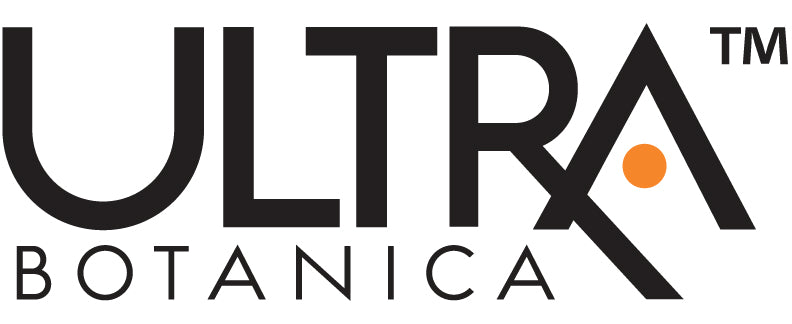Summer is fast approaching. This means more skin showing. And that begs the question – are you incorporating the best skin nutrients into your daily routine, so you can feel confident?
Let’s explore which nutrients are considered the best and how you can easily obtain them.
You want skin that radiates health. The right nutrients, both internally and externally, play a vital role in achieving this, going beyond just topical skin care products.
16 Essential Nutrients for Healthy Skin
Your skin is your body’s largest organ. It acts as a critical barrier of protection, so it’s vital that you support the health of your skin. Did you know your skin might even weigh around 20 pounds?
Taking care of it with key nutrients takes thought and planning. Here’s a look into what these best skin nutrients are, and their primary benefits for your skin.

1. Protein
Protein provides the essential building blocks for skin structure, primarily through collagen and keratin—two proteins that help keep skin strong and resilient.
The amino acids in protein support cell turnover by helping shed old skin cells, and some even act as antioxidants, protecting against UV damage and free radicals.
To keep your skin healthy, aim to include protein-rich foods like lean meats, fish, eggs, beans, and lentils in your diet.
2. Collagen
Collagen is one of the most abundant proteins in the body and plays a key role in maintaining skin structure and firmness. As we age, natural collagen production slows down, which can lead to a loss of elasticity and tone.
To support healthy skin, supplementing with collagen peptides can be beneficial. Good sources include bone broth, chicken, fish, and collagen peptide powders.
3. Omega-3 Fatty Acids
Omega-3s play a key role in keeping skin moisturized, firm, and elastic by helping regulate oil production and supporting the structure of cell walls. A deficiency in these healthy fats can lead to dry, irritated skin.
To boost your intake, enjoy fatty fish like salmon and mackerel, or plant-based sources such as walnuts, flaxseeds, and chia seeds. Omega-3 supplements are also a convenient option.
4. Biotin (Vitamin B7)
Biotin helps skin stay properly hydrated. It also supports healthy hair and nail growth.
It is found in a variety of foods including eggs, nuts, seeds, and sweet potatoes. Deficiency is generally not an issue unless you have malabsorption issues.

5. Zinc
Zinc is one of the best skin nutrients for wound healing and maintaining cell wall strength. It is abundant in the outer layer of your skin. Zinc helps by offering significant antioxidant benefits to guard against free radical damage.
Oysters, beef, poultry, nuts, and seeds are all great sources of zinc. Skin health conditions like atopic dermatitis and eczema-like symptoms may result from inadequate zinc intake.
6. Magnesium
Magnesium is a vital mineral that supports hundreds of cellular functions, including energy production, DNA and RNA synthesis, and protein formation—all of which are essential for healthy skin.
It also plays a role in reducing stress, which can help prevent breakouts. You can boost your magnesium levels through foods like spinach, pumpkin seeds, almonds, and dark chocolate.
For additional support, magnesium chloride supplements are well-absorbed and beneficial for skin health. Topical magnesium sprays may also help relax muscles and ease tension, offering indirect benefits to your skin.
7. Hyaluronic Acid
Hyaluronic acid is naturally found in the skin. It keeps skin cells lubricated and hydrated to help with visible signs of skin aging and fine lines.
Supplementing it internally and applying topically can help the skin retain plumpness. You can find it naturally in bone broth and citrus fruits.
8. Berberine
Berberine helps manage underlying factors that can lead to blemishes and other skin issues by supporting the body’s ability to balance healthy inflammatory responses.
It’s commonly found in anti-acne formulations but is also available as a stand-alone supplement.
Berberine is the primary ingredient in Pathway 3™ — which utilizes the patented Protisorb™ technology to enhance absorption.

9. Curcumin
Curcumin, the active ingredient of the turmeric plant, provides powerful antioxidant protection for healthy cell function.
In Asia, curcumin powder is often used as a pre-wedding skin treatment intended to make the skin of the bride (and sometimes the groom) more beautiful.
You can take curcumin in capsule or powder form. UltraCür® Curcumin uses patented Protisorb™ technology that vastly improves absorption without GI upset.
A delicious curry dish is also an easy way to incorporate more curcumin into your life.
10. MSM (Methylsulfonylmethane)
MSM is a naturally occurring sulfur. It aids collagen and connective tissue production to help maintain skin flexibility and firmness.
Leafy greens, garlic, onions, Brussels sprouts, broccoli, and cauliflower boost MSM. It can also be found in supplement form.
11. Omega-7s (Sea Buckthorn)
Omega-7 fatty acids, found in sea buckthorn oil, help soothe inflammatory responses, encourage skin regeneration, and support sufficient moisture levels. Sea buckthorn contains vitamins C and E and helps heal sun damage.
Sea buckthorn berries and oil supplements are great sources of omega-7. Another good source is macadamia nuts.
12. CoQ10 (Coenzyme Q10)
CoQ10 is pivotal for the cellular energy necessary for collagen synthesis. Because it is an antioxidant, it prevents skin cells from damage linked to UV rays.
Coenzyme 10 has been shown to potentially help reduce photoaging and hyperpigmentation. It is naturally found in meat, poultry, and fatty fish.
Whole grains, nuts and seeds provide this skin-supporting enzyme as well.
13. Vitamin A
Vitamin A helps regulate cellular turnover for the outer and inner layers of the skin. It helps protect skin from damage and plays an important part in oil gland function.
Vitamin A comes in two main forms – retinoids and carotenoids. Carotenoids are abundant in colorful orange foods like sweet potatoes and carrots, while retinoids are in foods such as cheese and eggs.

14. Vitamin C
Vitamin C plays a vital role in collagen production, which naturally declines with age and with poor dietary habits. It also helps protect the skin from UV damage—a major contributor to premature aging and a significant precursor to skin cancer.
A 2012 study linked regular vitamin C intake to more youthful-looking facial skin. You can get plenty of this powerful antioxidant from foods like bell peppers, berries, citrus fruits, broccoli, or through a variety of dietary supplements and topical applications.
15. Vitamin D
Vitamin D supports healthy skin cell function and plays a key role in repairing skin damage or injury.
While fatty fish like tuna and sardines provide some vitamin D, the most effective source is sunlight—particularly midday sun when UVB rays are strongest.
Many vitamin D supplements include both D3 and K2, as they work together to support absorption and help prevent calcium from accumulating in the arteries, where it shouldn’t be.
16. Vitamin E
Vitamin E is one of the best skin nutrients for maintaining moisture and protecting against environmental factors. As a powerful antioxidant, it supports skin-cell renewal and is commonly found in topical skin care products.
You can boost your vitamin E intake through foods like avocado, extra virgin olive oil, almonds, and other healthy fats. In fact, studies show that diets rich in olive oil can help reduce signs of skin photoaging.
Lifestyle Factors for Youthful Skin
Healthy, youthful skin isn’t just about the best skin nutrients—it’s also shaped by daily habits. Regular exercise, proper hydration, and these other lifestyle factors all work together to support a radiant, resilient complexion.
Exercise
Engaging in regular physical activity benefits the skin:
- Enhances Blood Circulation: Exercise increases blood flow, delivering oxygen and nutrients to skin cells, which supports skin health and vitality.
- Promotes Detoxification: Sweating during workouts helps unclog pores and remove toxins, reducing the likelihood of acne breakouts and improving overall skin clarity.
- Supports Collagen Production: Physical activity stimulates collagen production, which maintains skin elasticity and reduces the appearance of wrinkles.

Hydration
Adequate water intake is crucial for skin health. It:
- Maintains Moisture Balance: Proper hydration helps keep the skin plump and supple, reducing dry skin and flakiness.
- Flushes Out Toxins: Water helps eliminate waste products from the body, which supports a clearer complexion.
Additional Lifestyle Factors for Skin Health
- Balanced Diet: Consuming a diet rich in fruits, vegetables, lean proteins, and healthy fats provides essential nutrients that support skin health. Foods high in antioxidants can protect the skin from free radical damage.
- Sun Protection: Regular use of “clean” sunscreen protects (see the EWG sunscreen guide) the skin from harmful UV rays, preventing premature aging and reducing the risk of skin cancer.
- Adequate Sleep: Quality sleep allows the skin to repair and regenerate, creating a more youthful and energetic appearance. Lack of sleep can exacerbate skin conditions and accelerate aging.
- Stress Management: Chronic stress can negatively impact skin health, leading to issues like acne and eczema. Do stress-reducing practices such as meditation, yoga, and deep breathing to improve skin conditions.
These lifestyle habits provide health benefits that can significantly aid healthy, youthful skin.
Sensitive Skin Support
If you have a sensitive skin type, the right nutrients can make all the difference in your skin care routine.
Vitamins like E and D, along with omega-3 fatty acids and magnesium, help balance inflammation reactions, strengthen the skin barrier, and improve hydration—especially important as summer sun and heat can increase skin irritation.
Pairing these nutrients with gentle skin care products and proper sun protection helps support a calm, resilient complexion, no matter your skin type.
Conclusion
When thinking about the best skin nutrients, it all starts with mindful dietary choices. While getting the right mix of nutrients is simple, it does take intentionality.
Focus on whole foods rich in proteins, healthy fats, vitamins, and minerals—and steer clear of ultra-processed foods like fast food, packaged snacks, and sugary drinks.
Pair your diet with plenty of hydration and other healthy lifestyle habits including exercise, and you’ll be well on your way to strong, radiant skin—just in time for pool days, beach trips, and sunny outdoor adventures.






Share:
Curcumin for Blood Sugar: Natural Support for Healthy Levels
Dehydration: Signs, Effects and Prevention Strategies